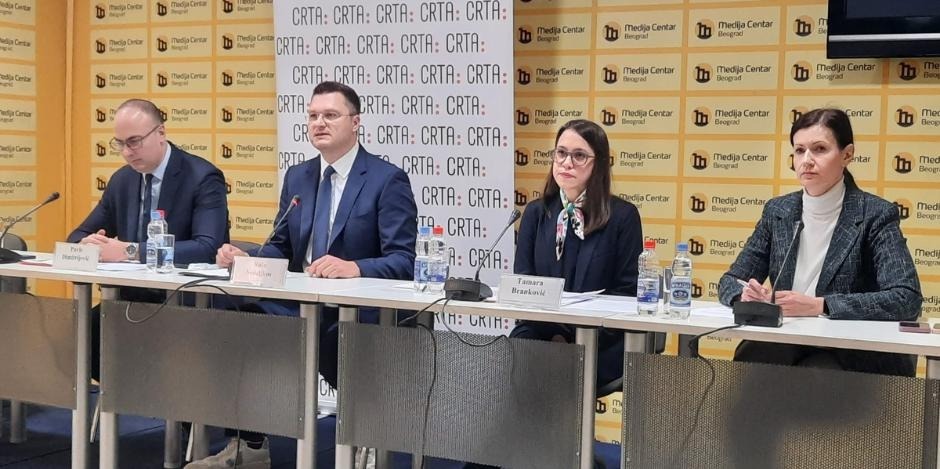CRTA’s Final Election Observation Report: Defeat of the state and the rule of law
 Foto – CRTA
Foto – CRTA
CRTA assessed that the extraordinary parliamentary and Belgrade elections, held on December 17, 2023, were not free and fair, as stated in the Final report of the CRTA’s Election Observation Mission, presented today at the media conference in Belgrade.
The election outcomes emerged as a result of the unlawful advantages gained by the ruling party, with the complicity of several state institutions and authorities – primarily the Ministry of Public Administration and Local Self-Government, and the Ministry of Internal Affairs, as well as bodies of certain local self-governments.
However, the main responsibility for cementing the detrimental principle of impunity lies with the prosecutorial bodies, due to their ignorance towards abundant evidence and well-founded suspicions of law violations in the election process.
“The elections were a kind of a fair of lawlessness”, stated Rasa Nedeljkov, Chief of the CRTA’s Election Observation Mission, emphasizing that “criminal and disciplinary procedures against initiators and perpetrators of criminal acts destroying the electoral integrity is a prerequisite for any further discussion on the electoral process”.
Along with determining the non-selective responsibility for breaking the law, prerequisites for the establishment of electoral integrity include the accurate voters registry and significant improvements of the professional standards in the performance of public broadcasters – RTS and RTV.
“The misuse of state for party interests manifested broadly – from extraordinary budgetary provisions to the engagement of state institutions in spreading hate speech and defamation of the opposition”, stated Tamara Brankovic, Chief Deputy of the CRTA’s Election Observation Mission, highlighting that one of the main features of the election campaign was erasing the line between the state and the party.
“On account of vote-buying and circular voting (also known as “carousel voting”), CRTA submitted complaints to the police in the amount higher than in any previous elections”, stated Pavle Dimitrijevic, CRTA’s Head of Legal Affairs.
Along with seven complaints regarding vote-buying, CRTA submitted complaints for the attack and intimidation of its observers, as well as five criminal charges against unknown persons for illegal manipulations of the voters registry.
In addition, CRTA filed a total of 85 complaints on account of different irregularities with the Agency for Prevention of Corruption, Regulatory Body for Electronic Media and Election Campaign Oversight Committee of the National Assembly.
Electoral engineering, i.e. organized migrations of voters and manipulations of the voters registry, most visible in Belgrade elections, is not the only manifestation of the defeat of the state and the rule of law, as highlighted at the presentation of the CRTA’s report.
Unscrupulous pressures on citizens, forgeries of support signatures for nominated lists, misuse of citizens’ personal data, falsification of the election results publication date in the Official Gazette of Belgrade etc. have been documented as well. Chronic problems in elections in Serbia, such as media inequality, misuse of public resources and office, and political clientelism, were also even more pronounced than in previous elections.
The findings of the CRTA’s Election Observation Mission show serious irregularities at 13 percent of polling stations in the parliamentary elections, while in the Belgrade elections, the share of such polling stations amounts to as much as 21 percent.








